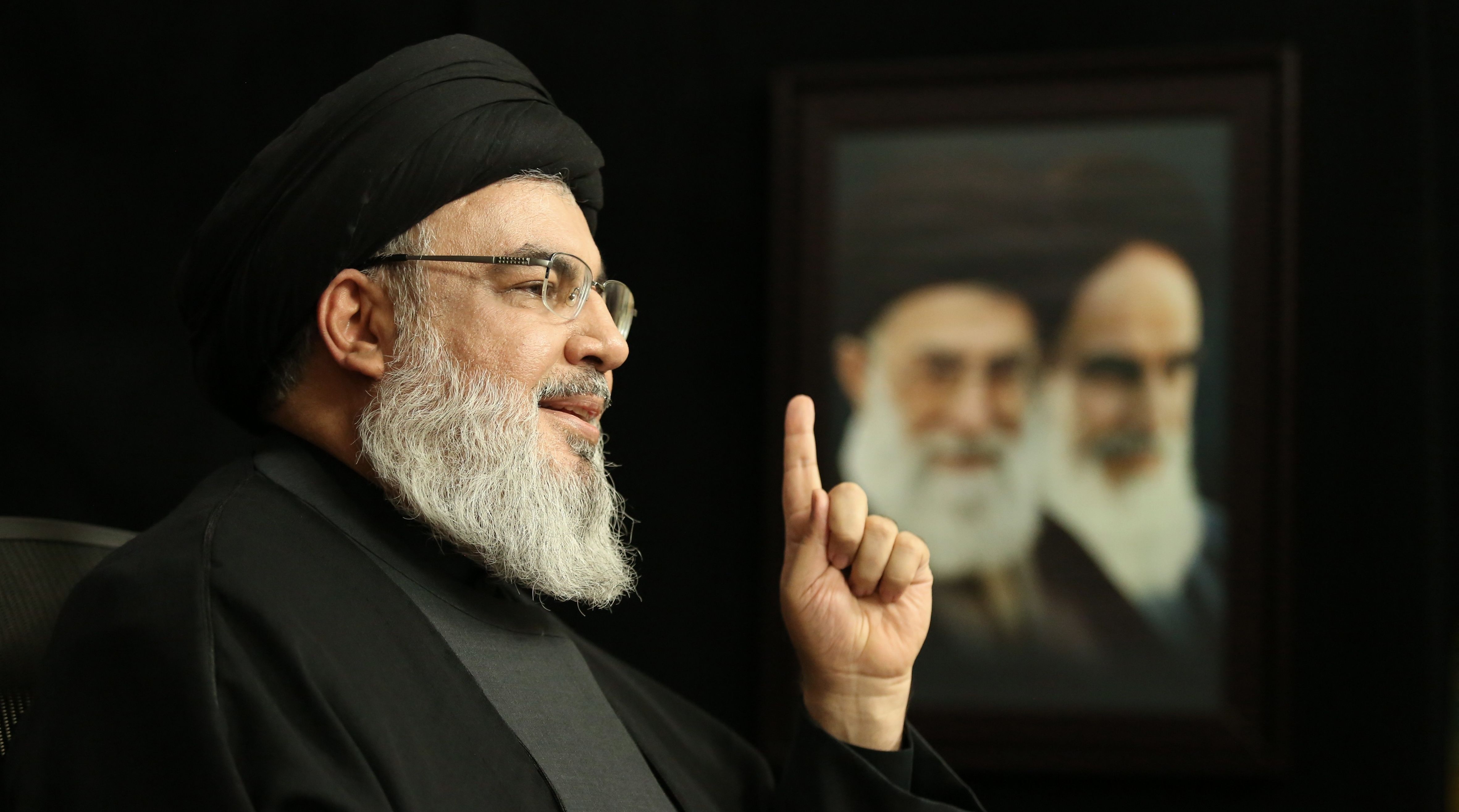The assassination by Israel of Hassan Nasrallah, the leader of the Lebanese Shiite militia Hezbollah, may have dealt a terminal blow to any chance of a renewed détente between the United States and Europe on the one hand, and Iran on the other.
The Israeli strike happened only few days after the reformist Iranian President Massoud Pezeshkian spoke at the United Nations General Assembly in New York of his desire to re-engage with the West, and his experienced foreign policy team — including those who negotiated the 2015 nuclear agreement (JCPOA), such as Vice President for Strategic Affairs Javad Zarif, Foreign Minister Seyed Abbas Araghchi and former ambassador to the U.N. Takht Ravanchi — were busy reconnecting with their Western counterparts to discuss the prospects of reviving diplomacy.
The assassination of Nasrallah is a blow to those prospects not because an Iranian retaliatory strike, which would compel the U.S. and EU to double down on supporting Israel, is imminent. In fact, Iranian leaders made it clear that the “Lebanese resistance” remains strong enough to deliver a response to Israel on its own, without direct Iranian involvement. To understand the probable nature of the Iranian response and how it would undermine incipient diplomacy with the West, it is first necessary to understand the role of Hezbollah in Iran’s defense strategy.
The Iran-Iraq war of 1980s still strongly influences Iran’s strategic thinking. Its main lesson was that Iran, absent military-political alliances that guaranteed its security, had only itself to rely on for its security needs. With Israel turning against Iran after the vanquishing of Iraq’s Saddam Hussein in the early 1990s, Hezbollah’s main role, from Tehran’s point of view, became to act as a deterrent against any possible Israeli strike on Iran’s territory, particularly its nuclear infrastructure. With its growing arsenal of Iran-supplied missiles, so crucial this role has become that a well-informed Iran-watcher told me in the late 2010s that Hezbollah’s “loaded gun” pointed at Israel has indeed become Iran’s best insurance against an Israeli strike.
While Israel will not succeed in completely destroying Hezbollah or whatever successor may emerge to replace it, given the organization’s deep roots in Lebanon’s Shiite community, degrading it opens a window of opportunity for Tel Aviv to strike at Iran at a moment of its perceived weakness. This is what, in fact, Donald Trump’s son-in-law, Jared Kushner, who is also seen as close to Israel’s Prime Minister Benjamin Netanyahu, recently suggested, arguing that for Israel a failure to act decisively now would be “irresponsible.”
Iranian leaders, particularly Supreme Leader Ayatollah Ali Khamenei, were slow to realize that Israel’s risk assessment had shifted dramatically after October 7, and old “red lines” no longer applied. While the assassination of Nasrallah may be seen as a reckless attempt by Netanyahu to distract attention from his failures in Gaza and boost his political standing, there is no evidence that his new, bold tactics met significant pushback from the military leaders, the opposition, or indeed the public at large.
Given that the Biden administration has shown no inclination or ability to restrain Israel’s actions, that means that Iran urgently needs to reestablish some semblance of deterrence. The option to weaponize the country’s nuclear program has been growing increasingly attractive, even before the latest Israeli campaign in Lebanon, to the point that now the majority of the Iranians would support it.
That option, however, carries enormous risks. While Iran has amassed enough technical expertise and material to build a bomb, an actual decision to build it, even if Khamenei were to shed his reluctance to go down that path, would almost certainly invite Israeli and/or American strikes on Iran’s nuclear infrastructure.
It will also trigger a sanctions snapback — a mechanism provided in U.N. Security Council Resolution 2231 that enshrined the JCPOA. It allows any member of the Security Council to reimpose nuclear-related sanctions on Iran without a veto from other members of the Security Council. The U.S. is no longer a part of the JCPOA, but Britain and France are, and any one of them could trigger the snap back. With a rapidly deteriorating situation in the Middle East, there is plenty of time to do that — the deadline to activate the snapback comes in October 2025.
The reimposition of the U.N. Security Council sanctions would wreck any plans by the Pezeshkian administration to reach out to the West, remove sanctions and improve Iran’s economic situation, which, in turn, would further deepen the already simmering public discontent with conditions in the country.
Another option for Iran would be to urgently upgrade its air defenses — which it has to do in any case — but, in current circumstances, it would mean relying on Russia in the hope that Moscow would reciprocate Iran’s deliveries of drones and, reportedly, ballistic missiles deployed in Ukraine.
Russia, however, has its own calculations, including its wariness of potentially alienating its other partners in the Middle East, such as Saudi Arabia and United Arab Emirates, if it is perceived as moving too close to Iran. Even if Russia overcomes these reservations, Moscow may ask for more in return, such as military bases on Iranian soil — politically, a controversial matter in Iran. But if, faced with a threat to its survival, the Islamic Republic does move closer to Russia, the chances of a renewed dialogue with the West, particularly Europe, would be nipped in the bud at a time when the reformist administration in Tehran strives to diversify its international ties.
All of this could have been avoided if the Biden administration had used its leverage to restrain Israel and engage in good faith with Iran on the nuclear issue and regional security. As the U.S. is in the midst of an election campaign, the chances for such an about-face in Washington are nil.
















